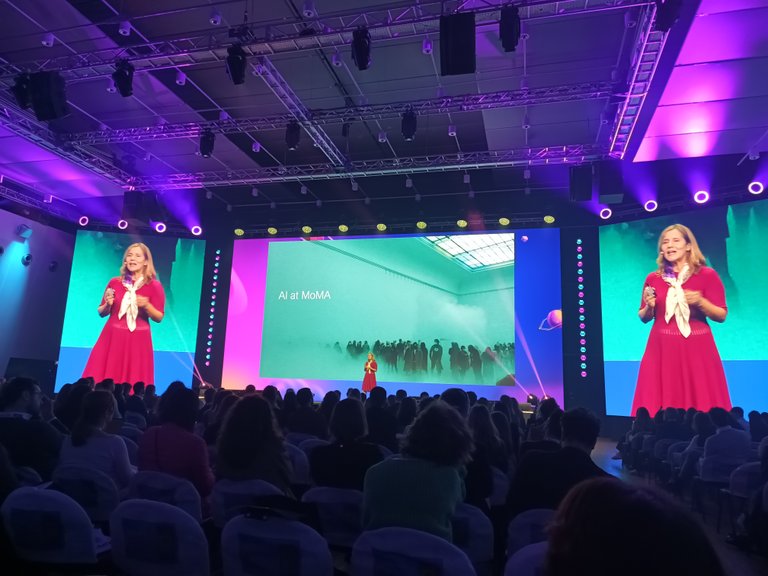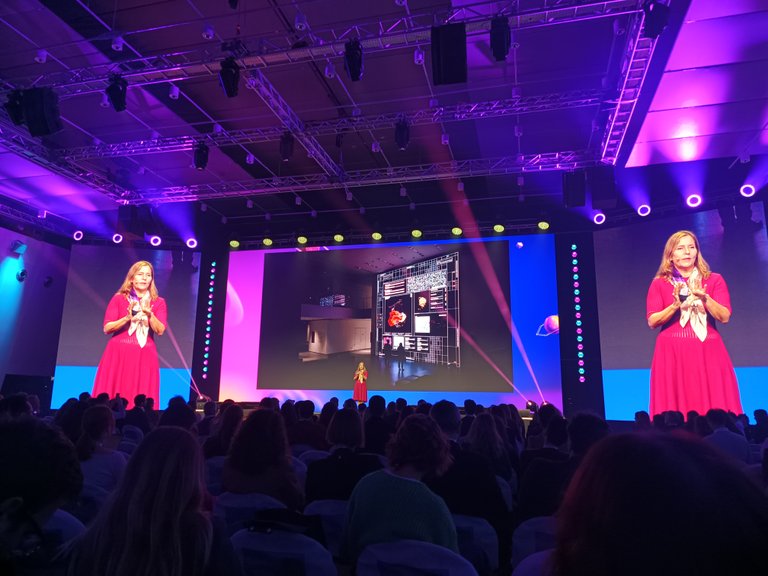Recently, as I told you a few days ago, I was at an event in Milan that got me thinking quite a bit. Among many other things they were talking about AI and art, in a meeting curated by Paola Antonelli of MoMA New York, and the discussion highlighted an interesting point: whenever we are faced with radical change, our first instinct is to defend ourselves, as if we were facing a threat. But the more I thought about it, the more I realized something: the people and ideas that really succeed in thriving are those who can adapt quickly to these "new rules," even when they may seem elusive at first.

Every major change seems almost like an attack on what we know and consider "normal." Take for example the invention of photography: for centuries, painting had been the medium for representing reality, and suddenly a new tool came along to do the same job, more accurately, maybe better. The painters of the time were faced with something that seemed to threaten the very essence of their art. Some closed themselves in denial, trying to defend their role. But others, welcoming the novelty, went further and created something new, exploring styles such as Impressionism. Where there was fear and resistance, an evolution was born.
Today, we see something similar with artificial intelligence. Many in the arts (but not only) see AI as a risk, as something that takes away our creative spaces. But others have chosen to explore, seeing it as a new possibility: another "paintbrush," if you will, that allows us to do things we never imagined.

The First Reaction: Defend Yourself
It is natural: when we are faced with something new and destabilizing, the first impulse is to protect ourselves. We cling to what we know because it seems safe. Think of the oil crisis of the 1970s, when the instability of energy resources created great anxiety globally. In many countries, the initial reaction was to "defend" themselves, building reserves and trying to control access to energy. But it was in that crisis that the push to invest in new energy and to rethink the energy sector was also born.
The same is true for Internet, social media and digital advertising. At first, many companies perceived them as a threat and tried to defend themselves, to stem the change. But then they realized that Internet was an unstoppable reality. Those that understood how to use it to their advantage became leaders in a transformed market.
Paola Antonelli, during the talk, made me think about this very thing: accepting change does not mean ignoring that first defensive instinct that we all feel. Feeling "threatened" is human. The real leap happens when, instead of stopping there, we are able to go further and imagine what new the change can bring. Those who can overcome that initial sense of threat have the opportunity to reinvent themselves. The future belongs to those who can see in change not only a danger, but also a new terrain to explore.
Happy weekend everyone 👋🏻
This post is the result of MY work. AI is just a tool to enhance and refine MY content. This is Human-driven AI. No AI-fueled fake content.
Do you have experience on Hive?
Feel free to leave your suggestions, I'm here to grow and improve.
New to Hive? Here is what I learned to have a good stay here: Thank you!
🔸Do not copy/paste & Do not spam & Do not flood
🔸Take your own photos or, if necessary, use the copyright-free ones
🔸Do not upvote your own posts and comments
🔸Interact with others & Do it in a meaningful way